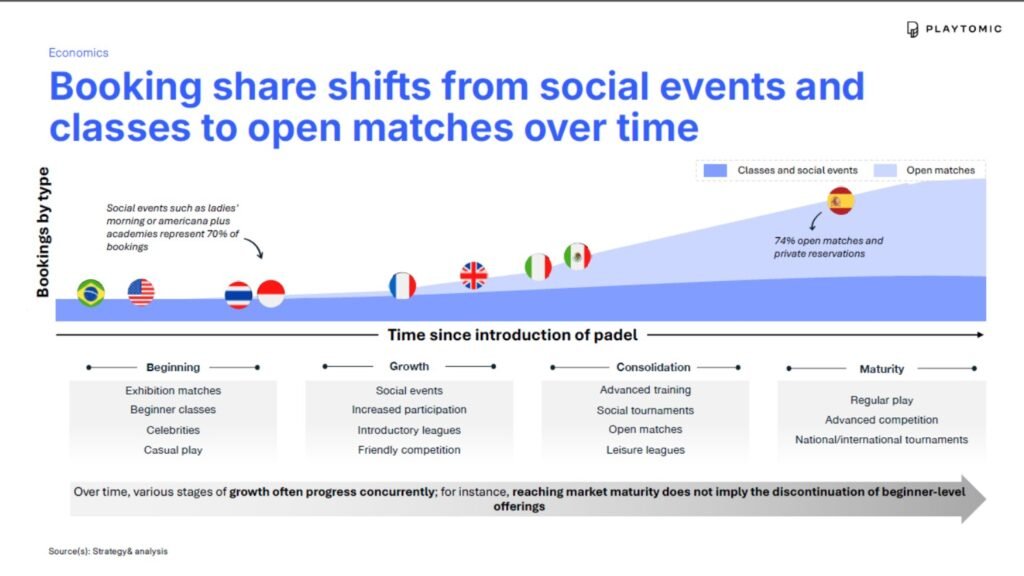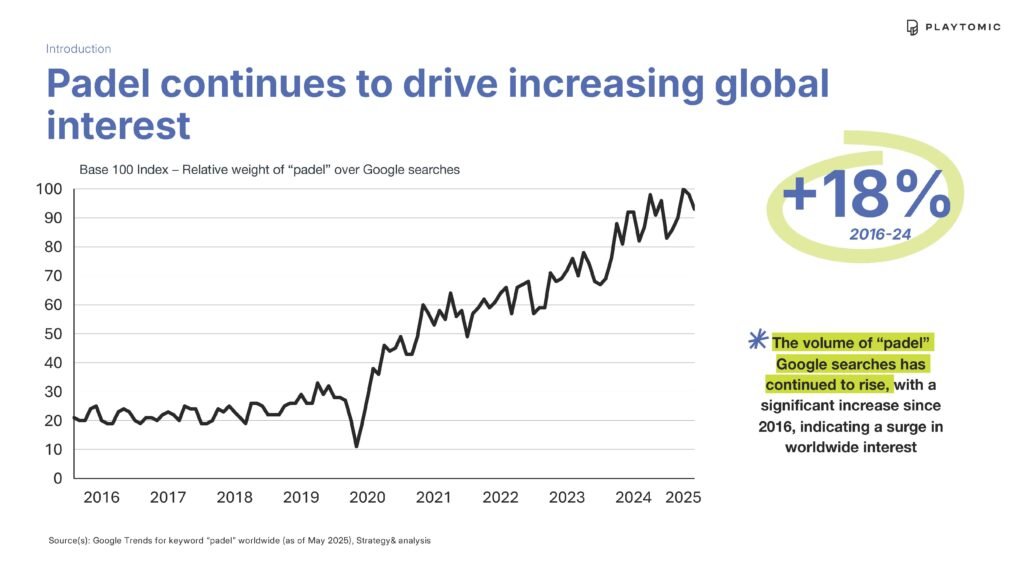Playtomic Global Padel Report 2025 – Part 1
Padel continues its global rise, with strong growth in 2024 and projected increases in court numbers in the near future. Interest is spreading fast, especially in the US, APAC, and Latin America, with digitalization emerging as a key differentiator for club performance. With 92% player retention and increasing tournament activity, padel is evolving into a sustainable sport with strong Olympic ambitions for the Brisbane 2032 games.


Key Takeaways
- Club openings increased by 26%, with 7k new courts built globally in 2024, signaling sustained growth across multiple regions
- Even though growth rates vary by country, with some seeing gradual increases and others accelerating more rapidly, padel is now growing at a faster and more sustainable pace
- Growth has now stabilized along a pre-COVID trajectory, after reaching an all-time high, likely due to a backlog of court installations postponed during the pandemic
- Pickleball and padel are expected to coexist healthily, with 30% of padel clubs in the US also having pickleball courts, and a 92% retention rate among first-time padel players
- While classes and social events are the most common types of bookings in countries where padel is still emerging, private reservations and open matches become predominant as players improve their skills
- Open matches allow clubs to charge higher ticket prices than classes, though player and club SaaS bookings remain the main source of revenue due to their strong popularity
- Achieving higher occupancy levels relies heavily on effectively balancing indoor and outdoor court availability, taking into account price sensitivity and weather patterns to optimize accessibility and revenue
- Padel has evolved from a membership-only model to a pay-to-play approach: a more digitalized way to experience the sport that has accelerated its expansion and development through greater accessibility
- 2025 is a key year for padel’s Brisbane 2032 Olympic track, with the FIP highly involved advancing this goal. However, it remains challenging for a sport played at a high level in just 2 countries to be added to the Olympic programme.
- Becoming an Olympic sport would bring benefits both institutionally (increased funding, grants and improved training facilities) and commercially (greater sponsorship revenue and wider social media visibility)
Source(s): Strategy& analysis
Share















Post Comment
You must be logged in to post a comment.